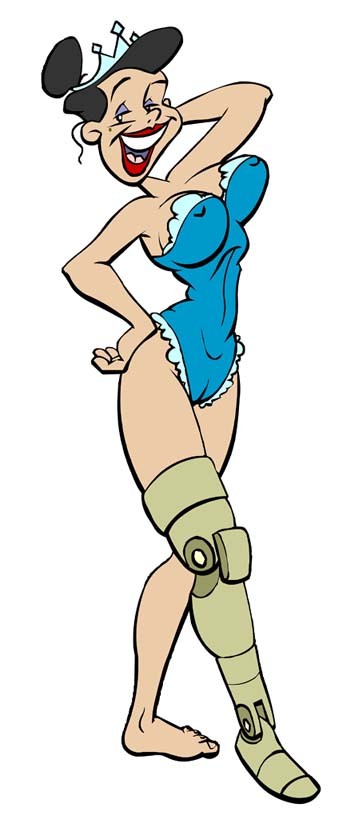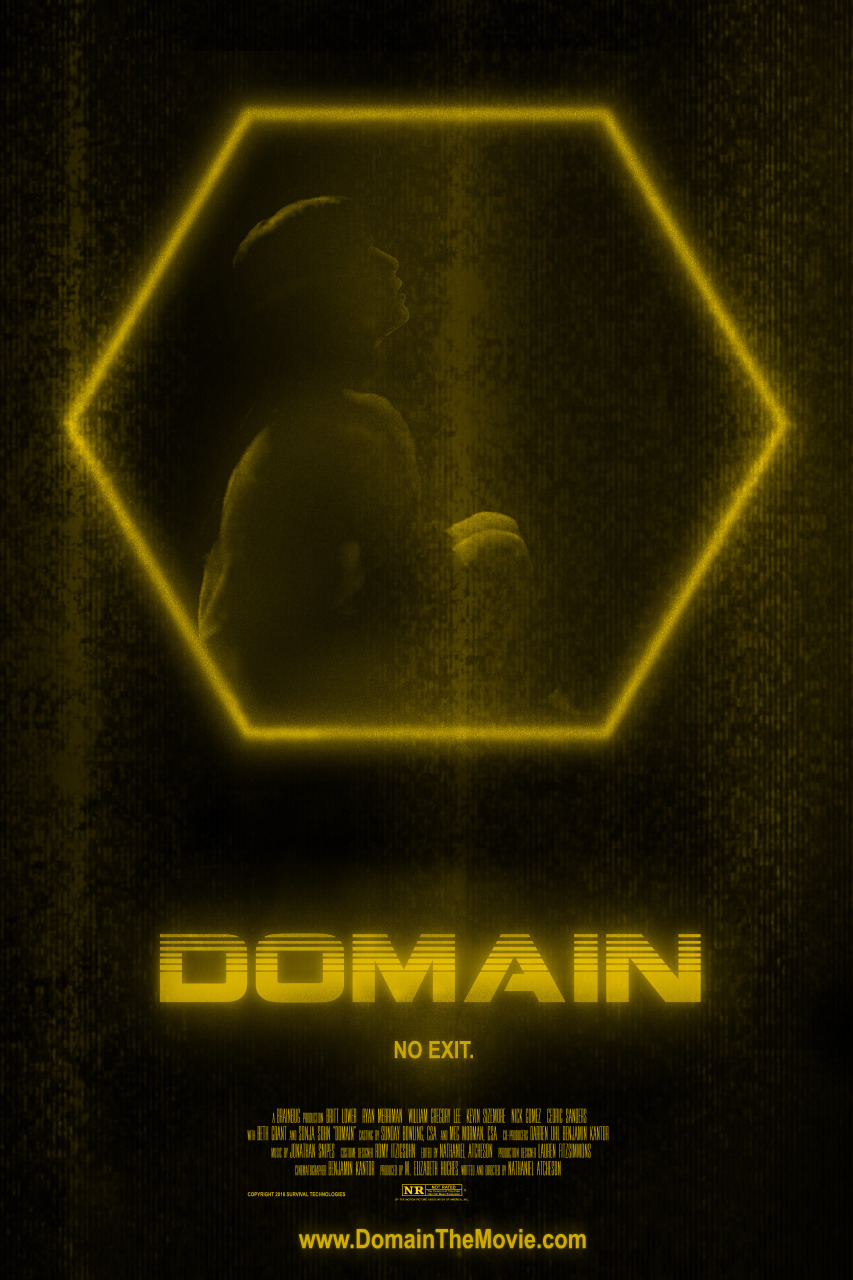
Last weekend I had the pleasure of viewing the indie scifi thriller DOMAIN ahead of its world premiere at the Other Worlds Austin SciFi Film Festival. The film is about a group of bunker dwelling survivors of a worldwide plague who are in communication with a handful of other survivors in the underground "Domain." With ample provisions and protection in their identically designed neo-throwback pods, the survivors (known by their home city- Denver, Orlando, Phoenix, etc) cope with the monotony of sequestered life by sticking with strict daily routines based around the on board simulated circadian clock and piped in directives to eat and exercise from Nadine, the creator of the Domain. When the group challenges the established structure by blocking one of their group member's communication feed, the surroundings that they've grown accustomed to for over five years of refuge begin to take on a new meaning.
I really dug the simple yet thematically huge story, and was very excited by the opportunity to interview writer/director Nathaniel Atcheson as well as cast members Ryan Merriman, Britt Lower, and Kevin Sizemore. I hope you enjoy my chat with them.
Rebecca Elliott: I guess I'll just jump right into it! Genre inspirations? I mean, I picked out a couple of things that I thought were obvious, but maybe not?
Nathaniel Atcheson: Yeah...
RE: Can you talk about your influences?
NA: I mean they're probably pretty obvious. ALIEN was my first favorite movie. BLADERUNNER- ya know things with that sort of retro, kind of old but new feeling. We really didn't want the movie to feel dated, like if you watched it in five years. So, we completely eschewed any sort of modern technology and put only old technology in there. The interface [of the communication modules characters use] is so basic, and the set design- we didn't want it to have any flourishes. I feel like a pristine, minimalist look would just feel wrong. Like that would be too 2016. We wanted to make it dirty and lived in, and that was it. So yeah, we used some specific movies as touchstones, but really we were looking at any sort of design aspects from 1979 specifically is what we went with. So with the costumes, the set choices- even like the wood grain and music.
Ryan Merriman: The TRON music.
RE: I was going to mention that. It's such a thing right now, the throwback early synth music.
RM: We were ahead of the curve.
NA: We did it first. We were definitely into it before the STRANGER THINGS opening title sequence. (everyone laughs)
RE: That's great! I am a fan of that style of music- that whole vibe of "sort of throwback" music that somehow makes it feel timeless along with the set design, etc.
NA: Right. Our composer Jonathan Snipes also did the music for the film ROOM 237, the Kubrick documentary. He's amazing.
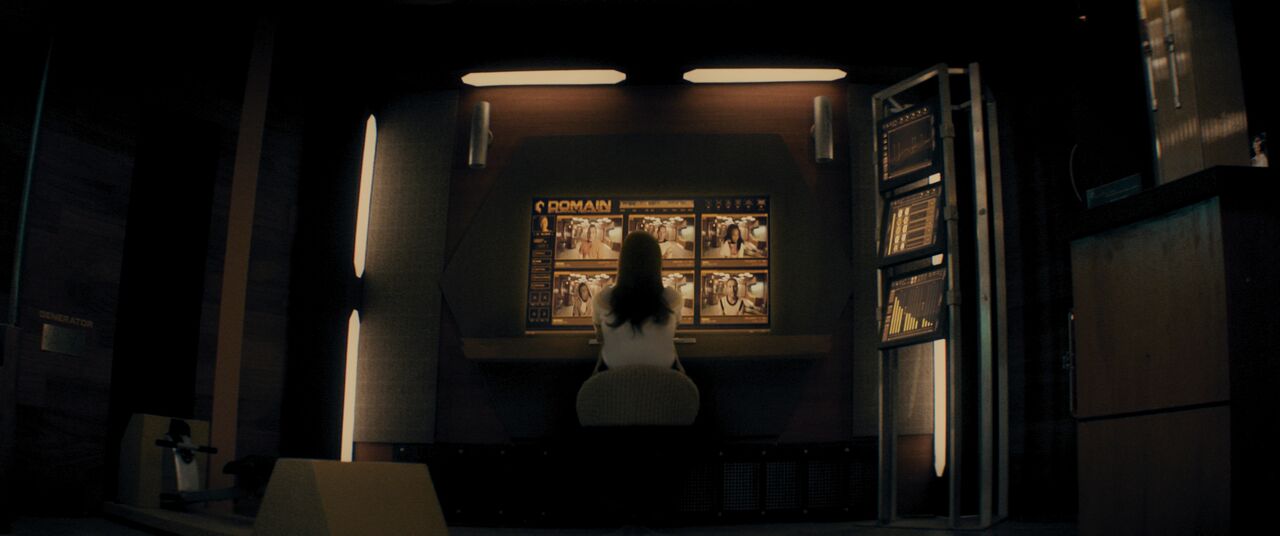
RE: Speaking of set design, I'm assuming there was only one "pod" or at least that's what I'm calling it.
NA: Yeah, that's what we call it too!
RE: Can you talk about the challenges as actors and of course also as the director when working withing the confines of such a limited set?
NA: I'll let them answer that actor part of it, but I knew way early on... there's a version of making this movie where we were going to bring in each actor one at a time, shoot out their stuff, and them read with an off camera person and just be done with it. The would've been the cheaper, faster way to do it for sure. I knew that wasn't going to work performance-wise, so my DP and I came up with this system to make sure that everyone could basically be on camera in the same room with each other at the same time. Which involved building one sound stage and then having a line of Go Pros against a green screen on the other side of the stage where they could see each other using teleprompters. Which meant that everyone was always acting with each other, and everyone was basically on camera the whole time, which I think really made the performances pop.
RM: Kevin drew a diagram.
Kevin Sizemore: There ya go. (shows diagram he jotted down on a napkin of a solo seat on one side of a green screen wall with 6 seats on the other side)
RE: Nice!
RM: There's the bunker, and we're here, and that's the green screen...
KS: Let's say Britt would be here (in the solo seat), and Ryan is here- or myself, whatever- and then when she would do her scene we would just rotate.
RE: I was wondering how you pulled that off.
NA: It was a lot. I'm sure the AD was pulling her hair out because we were basically shooting, like, 10 pages a day anyway.
KS: (coughs) How many?
NA: (laughing) Yeah, ten to twelve...twelve to fifteen...(everyone laughs) And because of the way we were doing it, essentially there were three to four set ups on each person. So you have seven people in a scene, fifteen pages, we have to do three angles on each of them- it was a lot.
RM: We had piles of chips and nuts, drinks and bottles all in our little area.
NA: And no time to break!
RE: No time.
RM: We're like, "Hey Britt! Are you good?" And she's like on the monitor in the bunker like, "Yeah, take your time." (mimics stuffing his face with snacks)
NA: Fortunately there was a bathroom like four feet away.
RM: Yeah, that was great.
RE: So as actors how was it portraying this big story in such a confined space?
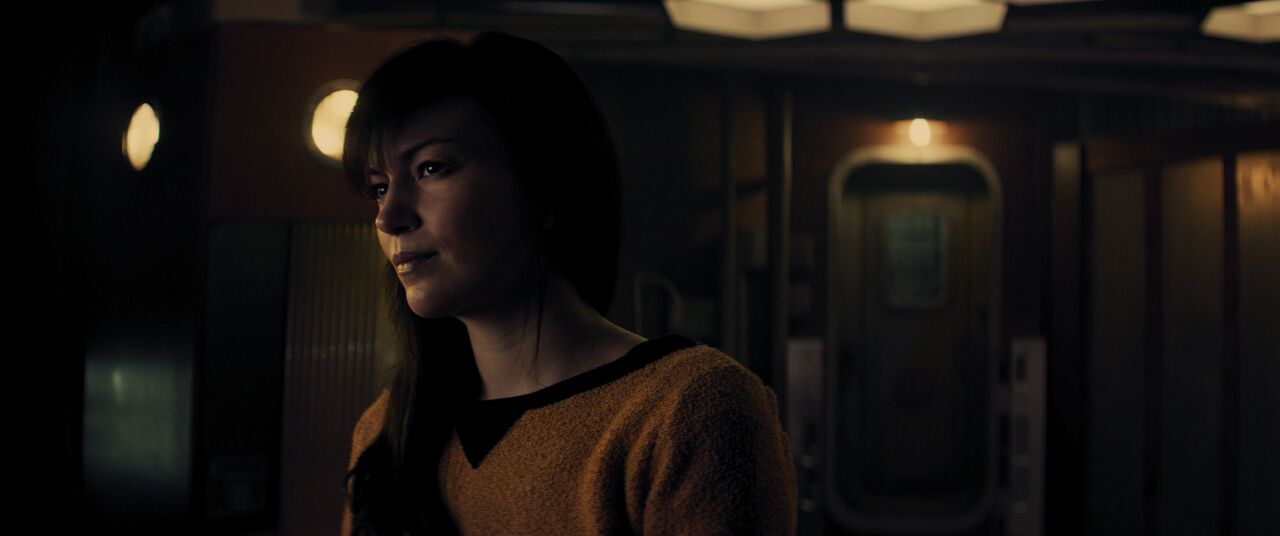
Britt Lower: For me what I realized that the biggest challenge was that you get so much information from being in a room with another human that you don't even realize. Other people happen to you, and when there's a screen and there's a person in the picture, it's just a different kind of information. It's almost like being in a private space almost the whole time with an awareness that someone else is there. That was different challenge than I ever experienced as an actor before.
NA: Which is also the head space of the characters.
BL: Absolutely. Totally. So, it actually works to your benefit. It's like sometimes you wanna get in there, behind the screen. And other times, you're so glad to have that screen. We were like kids in a candy store when we were finally all in a room with each other. I can see your eyelashes!
RM: Right! Like I was holding your hand, like, "You're here!"
NA: We shot for fifteen days and no one was on camera together. There's a dream sequence toward the end where Denver and Phoenix were in the room together- I don't even know if you remember this- but we had to do like 20 takes of that because you guys could not stop laughing! Because they were this close together for the first time ever.
RM: That's right! We couldn't stop laughing.
NA: It was our last day on the set, and I was like, "We just need to fucking shoot this!"
RM: That's right! We couldn't stop laughing.
NA: It was our last day on the set, and I was like, "We just need to fucking shoot this!"
BL: I forgot about that!
RM: You could not stop, and then I started.
RE: And Kevin, your character makes an early exit, so you had to pack so much into a short amount of screen time. Can you talk about building up such a dynamic that was so important to the rest of the story in such a short amount of time?
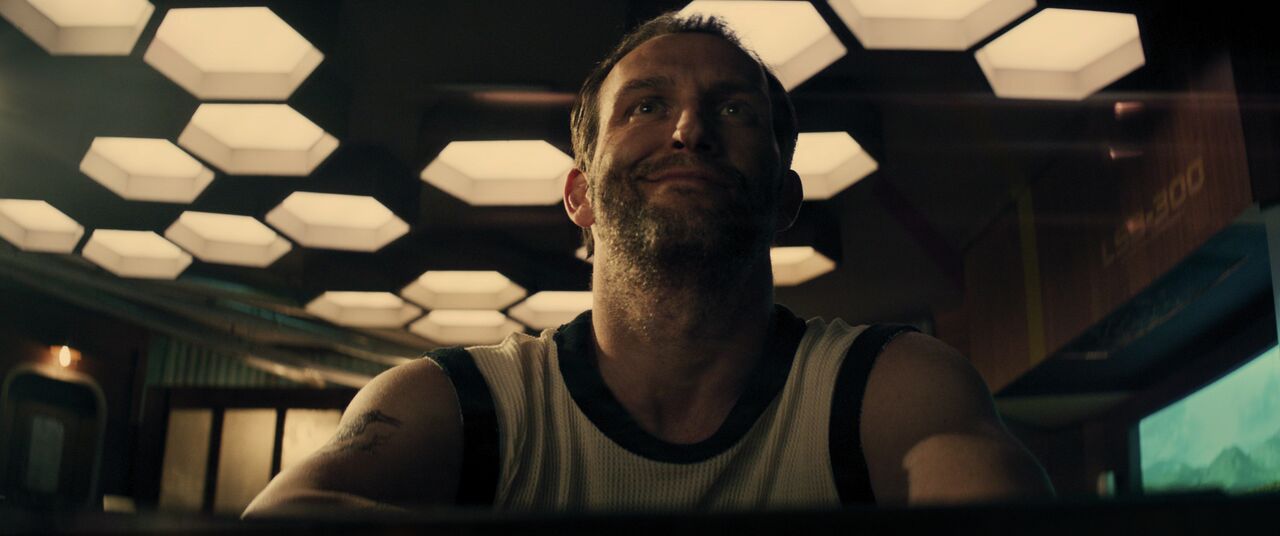
KS: Yeah, I won't say I was frightened, but I was concerned that I was not going to be able to live up to the cast because I knew going into this that I had to come in and make a statement. And not make a statement like me that actor, but I'm saying make a statement as me the character. Because if I don't pull this off, it doesn't work. I just told myself that I really had to go all out. 100 %, let's just drink twelve Red Bulls and go! That's kind of how I approached the character. But it's interesting because when I walked onto the set for the first time and saw this, I was fascinated because I didn't know how it was going to be pulled off myself. I had to see it, so as an actor walking into the room I was thinking how in the hell are they going to be able to do this? And then I saw how it was laid out which allowed me to process it. And then when I was more comfortable with how it was set up, I could let it fly. I knew I was going to get a crack at it. We're all going to get our own cracks- we did that scene 72 times! We all had to have three or four takes...
RM: Is that a real number? 72?
KS: That's right! No, I counted it! I counted it. I got home and threw my glasses down on the table and said, "We just did that scene 72 times. I'm going to bed!"
NA: I can't believe we did it that many times!
KS: It's not that the performances were bad. It's that we needed 3 or 4 angles on each person.
RM: Right. We were all in that scene at once.
KS: And there we had a few airplanes that had to go by. (everyone laughs) It was so exciting. We were just talking about this earlier that we've never experienced anything like that.
RM: 72 times has got to be a record.
KS: Well, Kubrick was known for that.
NA: I'm sure Fincher has broken that record.
RE: No doubt!
KS: But it was fascinating. And I was so happy to do it because it challenged me in ways that I've never been challenged before.
RE: Totally. Ryan and Britt, can you talk about the challenges of portraying a love story when you're not even in the same room with each other.
KS: Isn't that what kids do these days on their phones?
BL: Yeah! I mean, I work in Canada a few months out of the year and my partner is in the states during that time. It's so timely. I feel like we do experience our intimacy and receive our information from our computers screens right now in our world. That is exactly what these characters are going through. There is that relationship with the screen that's at once satisfying, but it's not fully there. So I think as an actor you're feeling that, and as a character you're feeling that need to connect in a more truthful, organic way. But you just have what you have. You use what is available to you.
RM: And a lot of times, when we have our more intimate scenes like the scenes where we're talking about how much we care about each other, we would actually sit just off camera. Just so you could hear the voice. That helped a lot too. Ya know just hearing their voice instead of on a speaker being around on the green screen. We did that for the more serious stuff.
KS: I remember watching their scenes and I would always refer back to seeing someone who is incarcerated with the glass between them and they'd always put their hand up to their loved one. They're so close and all they want is that [human touch]. It was fascinating to see their play on that.
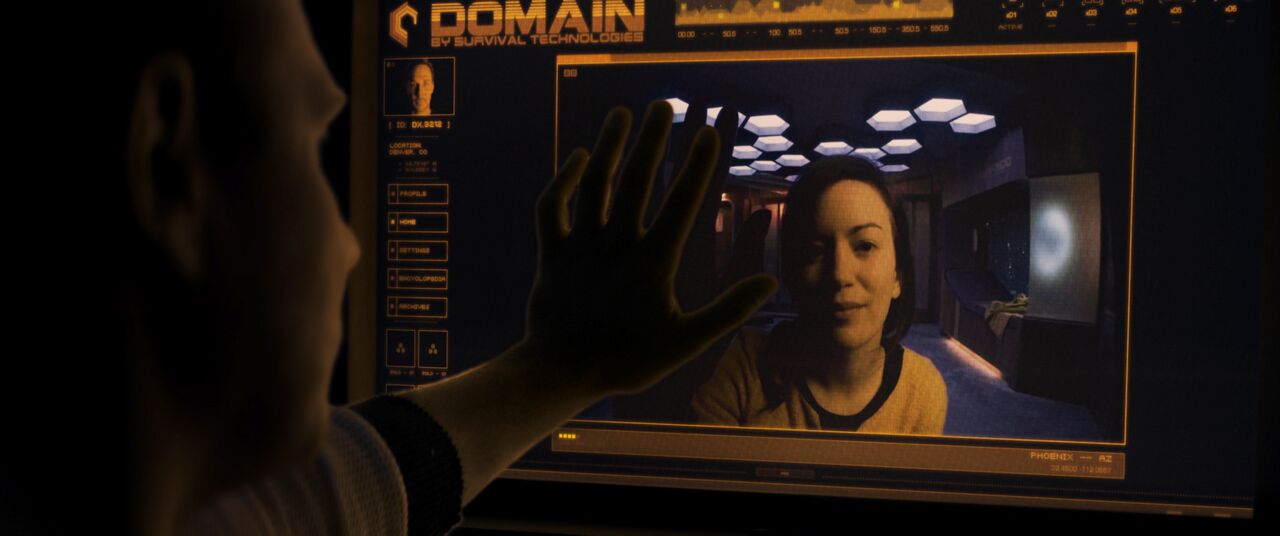
RE: It's obviously a genre film, and I guess I can ask everyone this. Do you have a favorite genre or is there a genre that you'd like to work in that you haven't?
NA: I love scifi and I'd be perfectly happy writing and directing only scifi for the rest of my life. I mean, I love horror and action- I love all movies. There are straight up dramas that I'd be more than happy to be involved with, but if I were to choose something right off the top of my head every time it would be scifi.
BL: I look more to the characters. I'm interested in complex female characters who are strong, intelligent, and, you know, have a struggle with complexities, with duality. This character for sure struck that chord for me.
RM: Same here. As an actor it's fun. You get to play new characters, different genres. It's just the challenge of the change.
RE: So no longing for riding horses and shooting arrows forever.
KS: He's done that! We were just discussing that I haven't gotten on a horse in a western yet.
BL: Yeah! Let's all do a western!
KS: A futuristic scifi western.
NA: Let's do WESTWORLD!
RE: Right...isn't that happening? (everyone laughs)
BL: Maybe a surfing cowboy...
RM: A surging cowboy? (more laughs)
RE: Now we're really on to something! Back to DOMAIN though...I love this idea of a relatively simple story but also has this huge imaginary context going on. Was that a construct of being limited on budget and that sort of thing or is that just always the way you saw the story regardless of possible limitations?
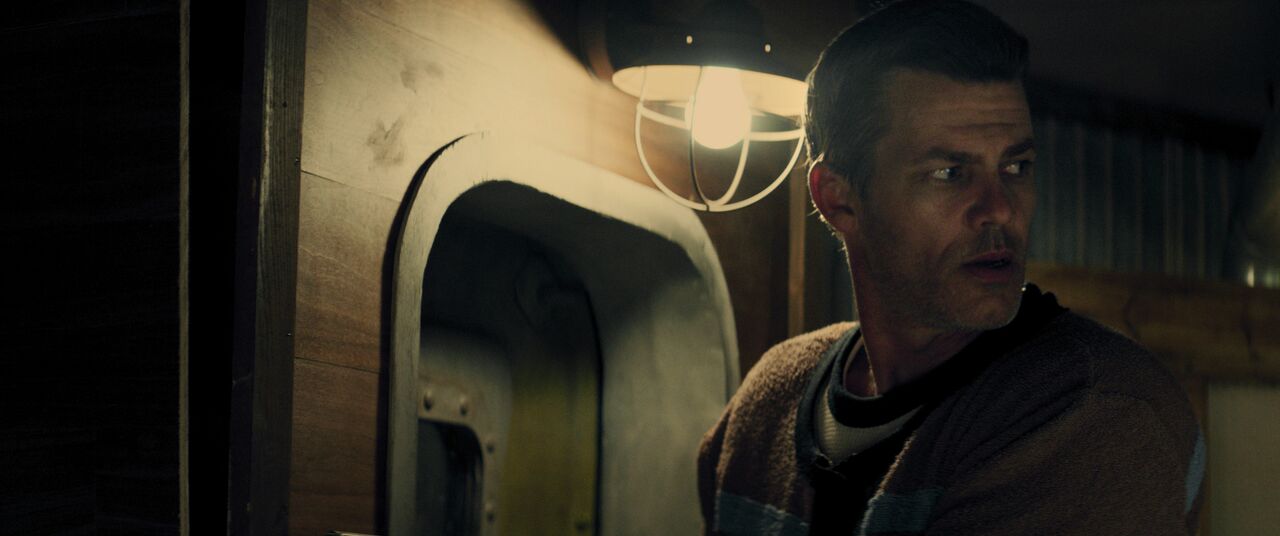
NA: I love movies where there's this implied thing outside of what you actually see. One of my favorite genre movies from the last decade is something that nobody ever talks about. It's a movie called PANDORUM with Ben Foster. It literally starts in this dark room where you can't see anything, and the way it builds up an entire world I thought was just amazing. Even movies that I don't think totally work, like THE VILLAGE or something like that I think are really interesting on that level. And I knew that just showing a little bit of the outside world is enough to convince the audience. I love that just making the stylistic choices we did like with the set design, the bits of dialogue, or just the "Nadine" (Beth Grant) video at the beginning that sort of explains things...you can get so much information across and paint a pretty clear picture of what the outside world looks like just based on a few key moves. I never felt any sort of a limitations. It felt like a way to create the world exactly the way I wanted to without having to show it.
KS: And Nadine did so much doing so little. She's just right there going, "Hi." It's creepy.
RE: Right!
KS: I saw her at a screening of FENCES two weeks ago, and we literally sat side by side and I go, "DOMAIN?" And she said, " I love DOMAIN!"
NA: Because you guys were never on set together.
KS: Never on set.
KM: Yeah, I think that if your budget was five times what you had you would've shot it the same way. I think we shot it perfectly for the situation of the characters. I wouldn't have wanted to do it any other way.
NA: We might've built a more appropriate final location instead of looking for a location that already existed. That might have been the only thing we'd do. But in terms of the bunker, no I would've made no changes even if we had a ton of money.
RM: It was kind of perfect.
KS: What I liked about it was that we didn't all have our trailers and we didn't have to say, "Ten minutes..." ya know? We were in the other room. If we even got off set at all. Because we were pretty much just there all the time.
BL: It was an incredibly generous cast. Everyone was so supportive of each other and enthusiastically collaborative. Couldn't have asked for a better experience.
NA: Yeah, it was really great for me on that level too that everyone was getting along and no divas.
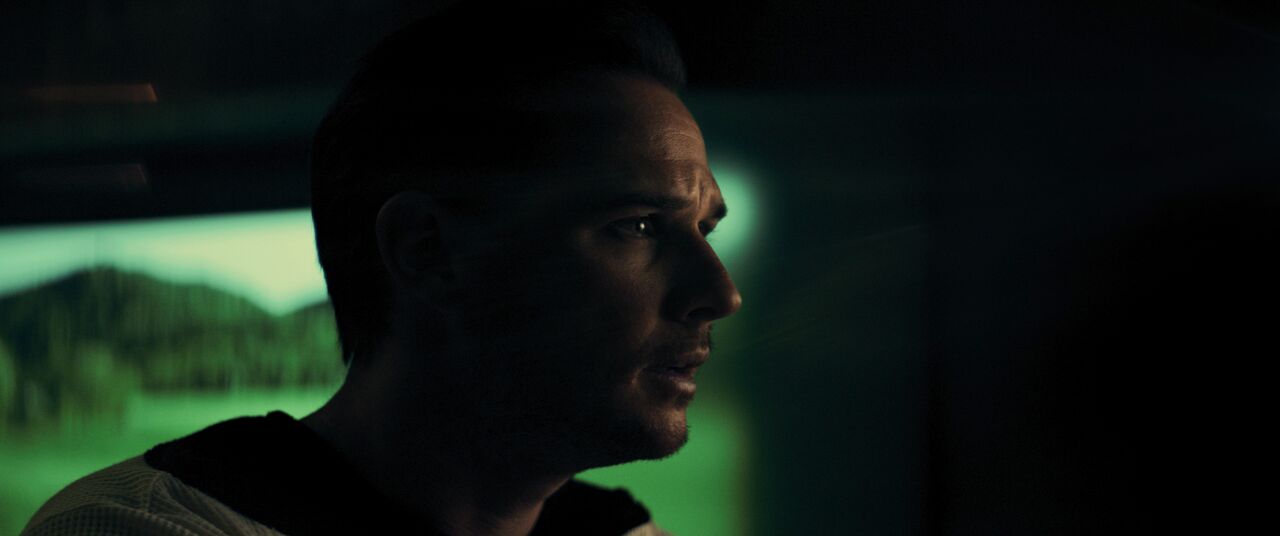
RM: There were no divas! And there were 9 people total. The craziest thing for me is when I watch the film I remember thinking- because Britt and I had a few scenes were it was just the two of us- there was like nine, ten pages. Remember when we'd look at it and be like, "Fuck, is this eight, nine pages?" And I just remember looking at it and thinking, man! Because he (points to Atcheson) did all the cutting, so when I watch it you just forget that's a ten page scene. It's just like boom boom boom boom! It was edited beautifully.
NA: Thanks.
RM: Yeah, I told you when I saw it I was like, "I cannot believe that." Because when you're shooting it, you're like oh my God how are they gonna...
RE: How are they gonna pull this off?
RM: Yeah! You're just staring at a lens, ya know? You don't get the interaction like [Britt] was talking about. It really works.
RE: It definitely does. Also, there's a cool element of being able to use sort of a webcam style but at the same time you're not stuck with a certain dogma like with found footage where every shot has to be generated from that established POV. I'm sure that was a chore to cut together and not feel disjointed.
NA: It was tough with basically having seven different feeds to contend with at all times. Yeah, it was a lot. My Premiere timeline is like the craziest cluster fuck of all time. (everyone laughs) It's like ten tracks going all ways. I have a fast computer, and it was dying by the end. It took me like 45 minutes just to open a project.
RE: How are we doing on time? Oh wow! I guess I better wrap this up...is there any word on a release for DOMAIN?
NA: Not yet. This is our world premiere, so no one has really seen it yet. We're definitely getting interest already just by being here. We have a whole bunch of festivals coming up this Spring. We're a small movie, and we went into it without a distribution deal, so we're just kind of at the mercy of the luck gods on that one. I feel like a movie like this will get a VOD release at some point. The question is whether or not we'll get theatrical or DVD. We'll wait and see. One of the reasons I wanted to make a genre movie is because I know there's a built in audience. There's just a lot of people who would watch a movie like this. If it doesn't get great reviews it doesn't matter that much- I mean, of course I want to make a movie that gets great reviews! But that aspect of it is less important than if you make like a hardcore drama or something.
BL: I think survival stories in general capture our imagination in a way that others don't. You can't help but picture yourself in these positions and wonder what would I do?
NA: Right. Like when I'm surfing through Netflix and I'm gonna watch a movie I've never seen before or haven't heard of, every single time I'll pick the single location scifi movie. (everyone laughs)
RE: Well, that sums it up perfectly and I wish you much success. Thank you so much for talking with me today about DOMAIN.
So, that wraps up my talk with the DOMAIN crew. I sincerely hope that everyone gets a chance to check out this interesting and inventive scifi film in the coming year, so keep a look out for DOMAIN. Thanks for reading.
Rebecca Elliott
aka Annette Kellerman
